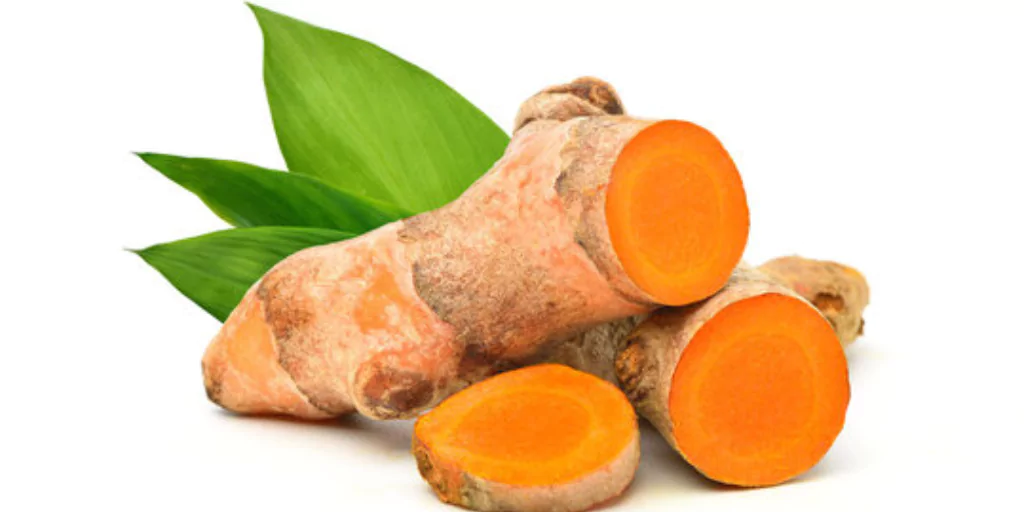Turmeric is a bright yellow-orange spice commonly used in cooking, especially in Indian and Southeast Asian cuisine. Scientifically known as Curcuma longa, it belongs to the ginger family. The active compound in turmeric is curcumin, which is responsible for most of its health benefits.
Turmeric has been used for centuries in Ayurveda, traditional Chinese medicine, and home remedies to treat a wide range of health conditions.

🧪 Nutritional Profile (Per 1 tbsp – 7g)
-
Calories: 24
-
Protein: 0.5g
-
Carbohydrates: 4.4g
-
Fibre: 1.4g
-
Iron: 16% of RDI
-
Manganese: 26% of RDI
-
Curcumin: Varies (found in extracts/supplements)
Top Health Benefits of Turmeric

1. Anti-Inflammatory Power
Turmeric is well-known for its anti-inflammatory power, thanks mainly to its active compound curcumin. Curcumin helps reduce inflammation, making it useful for joint pain, arthritis, and chronic conditions. Curcumin, the main active ingredient in turmeric, has potent anti-inflammatory properties.
2. Boosts Immunity
Turmeric is not only anti-inflammatory—it’s also a powerful immunity booster 🌟. It has antibacterial, antiviral, and antifungal properties, helping the body fight infections.
3. Supports Digestion
Turmeric can stimulate bile production and ease digestive issues like bloating or indigestion.
4. Good for Skin
Helps treat acne, reduces dark spots, and gives skin a natural glow.
5. Heart Health
It may help lower bad cholesterol and improve blood circulation.
6. Brain Protection
Curcumin may increase brain-derived neurotrophic factor (BDNF), supporting brain function and reducing the risk of Alzheimer’s.
🍽️ How to Use Turmeric in Daily Life

-
Add to curries, soups, or rice.
-
Drink turmeric milk (golden milk).
-
Mix in smoothies or warm lemon water.
-
Use in DIY face masks for skincare.
-
Take curcumin supplements (with black pepper for better absorption).
👍 Advantages of Turmeric
-
100% natural and easily available
-
Powerful antioxidant and anti-inflammatory agent
-
Supports overall wellness and immunity
-
Multiple uses in cooking, skincare, and medicine
Also See: What Growing Girls Should Eat
⚠️ Disadvantages / Side Effects
-
Overconsumption may cause stomach upset or nausea
-
May interact with blood thinners or diabetes medications
-
Some people may be allergic to it
-
Can stain skin and clothing if used topically
Note: Always consult with a healthcare professional before using a turmeric supplement, especially if you have a medical condition.
❓ Frequently Asked Questions
Q: Can I take turmeric every day?
Yes, moderate amounts are generally safe, especially in food. Stick to recommended doses if using supplements.
Q: Is turmeric good for weight loss?
It may aid in weight management by reducing inflammation and improving digestion.
Q: Can turmeric be used on the skin?
Yes! It’s great for treating acne and dullness, but do a patch test first.
Conclusion
Turmeric is more than just a kitchen spice — it’s a time-tested natural remedy with countless health benefits. Whether consumed or applied, its healing properties make it a valuable addition to your wellness routine. Like any supplement or remedy, moderation and correct usage are key.






